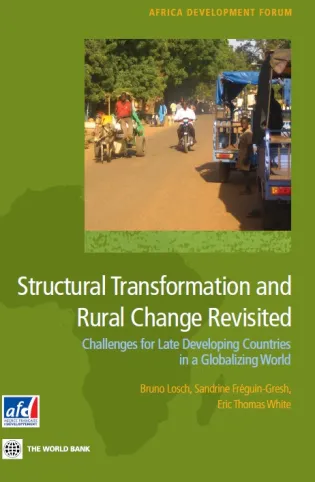Share the page
Structural Transformation and Rural Change Revisited - Challenges for Late Developing Countries in a Globalizing World
Published on

Many late developing countries face tremendous challenges: They have to deal simultaneously with their economic and demographic transitions in the context of globalization and under the constraints of climate change. Based on new evidence from an in-depth survey that included 8,000 rural households in 7 developing countries, Structural Transformation and Rural Change Revisited addresses the unique situation of regions that remain deeply engaged in agriculture. It explores the reality of their integration into global markets and the nature of the rural nonfarm economy. It then shows the paths through which agricultural economies diversify, and finally proposes a set of policy orientations that could facilitate the process of rural change. These include a clear need to engage in targeted development strategies at the regional level, to focus on staples and family agriculture, and to pursue a policy of "territorial development" that promotes strong rural- urban linkages at the level of rural localities, towns, and districts.
Useful Information
-
Authors
-
Bruno LOSCH, Eric Thomas WHITE, Sandrine FRÉGUIN-GRESH
-
Number of pages
-
298
-
Collection
-
Africa Development Forum
-
Other languages
